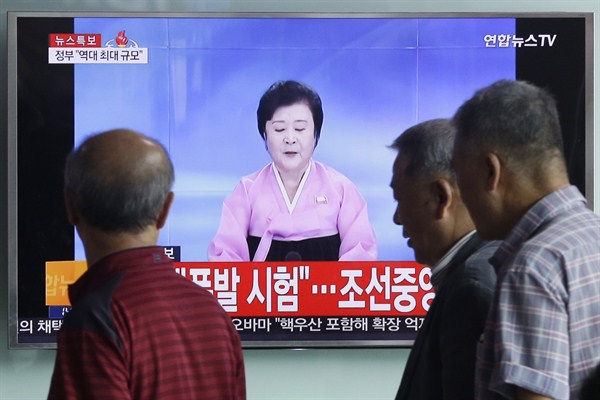This week, America commemorated the Sept. 11 terrorist attacks, and the world worried once again about North Korea's nuclear ambitions. All that is missing to illustrate all three of the biggest threats that will be priorities for the foreseeable future is a catastrophic natural disaster linked to climate change. The next president will have to update the strategies to cope with all three, with varying international mechanisms in place to do so.
National security experts often say that if everything is a priority, then nothing is. They wish that political leaders and bureaucratic processes would do a better job at establishing which issues supersede others in determining how the ultimate decision-maker's time and resources are allocated. But as a global power, the United States does have a very long list of issues that matter to it. Many also believe Washington should play an active role in preventing or resolving conflict, or helping to build global consensus about managing long-term challenges that affect peace and security.
All things considered, however, terrorism, nuclear weapons and climate change are the three big, long-term issues that deserve the most attention. Each of these threats is not an abstract or faraway international problem of the kind that some political figures would prefer to ignore; rather, each is a direct domestic concern. We've already experienced terrorism at home, from local and international sources. And the frequency and intensity of coastal storms, flooding and tornados can no longer be dismissed as weird weather phenomena. Rather, they are almost certainly manifestations of climate change. Only the threat from nuclear weapons proliferation remains a hypothetical, but North Korean bragging about its mastery of nuclear warhead technology and the range of its missiles makes this threat less abstract.

